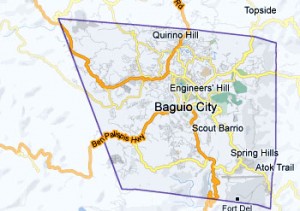
On Tuesday, the Baguio-based Center for Technical Excellence Integrated School Inc. (CTEISI) launched a pilot program called “TeleNursing,” which it describes as a training course on health care consultancy that is served through mobile telephones.
People may soon consult Filipino nurses by telephone about health problems, for a fee.
Nurses, in turn, will rely on the application (app) called “clickmedix,” which allows them to upload the medical conditions of their clients for examination and diagnosis of an in-house doctor of ClickMedix Mobile Healthcare by Experts, an online health care provider which introduced the concept of medical consultation through mobile telephones.
CTEISI will train nurses about the technology. In turn, nurses who pursue a “telenursing” consultancy career would share a portion of their revenues with the company to access the doctors and medical library that would be made available online by ClickMedix.
“There are so many nurses who are unemployed and we want to address that. And there is a way for technology to [aid in] health care,” said Bryce Fabro, president and chief executive officer of CTEISI.
“We want to equip nurses to make them relevant for tomorrow,” she said.
The nurses may undergo a two-week training program, which would also expose them to communities to help them learn about common health problems of these neighborhoods, Fabro said.
A “telenurse” is expected to operate using a smart telephone in order to manage their patients’ records.
The nurse who visits the patients in the communities can store the data in a personal chart through the clickmedix app, as well as photographs of patients to aid the doctor’s diagnosis.
Fabro said the process is similar to how a nurse consults a doctor in a hospital, only this time, it is facilitated by the nurse through her mobile telephone.
Elmer Soriano, country manager of Access Health International, said telenurses could provide a bridge between poor patients and doctors through an electronic referral system.
He said Baguio has potential to become a telenursing capital because the city’s schools, considered the education center of north Luzon, graduate 20,000 nursing students yearly.
“We have been practicing ‘telehealth’ services informally. But on a commercial and professional level, we need to come up with business models to legitimize the services. Our lead actors are the nurses who know the technology to keep things coordinated,” Soriano said.
“This will change rules on how we deliver services in the Cordillera,” he said.